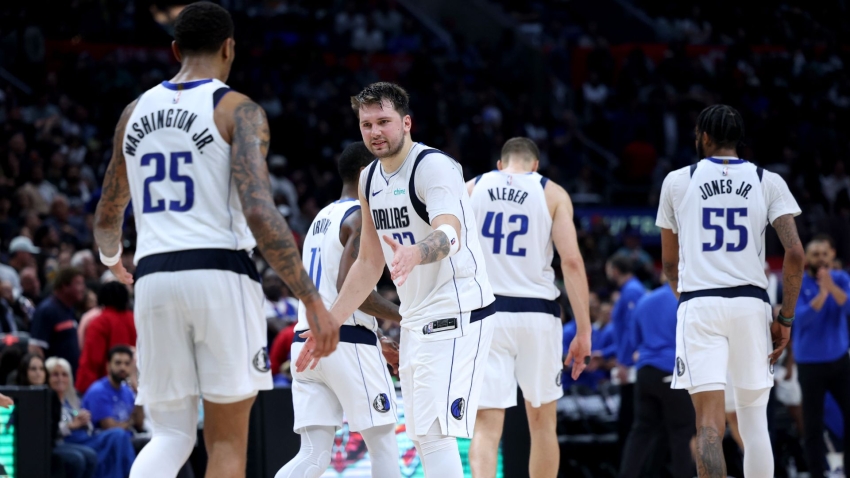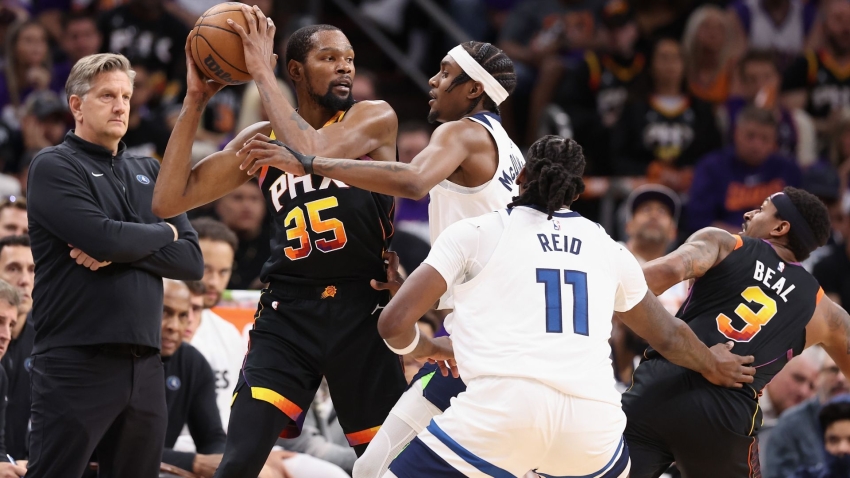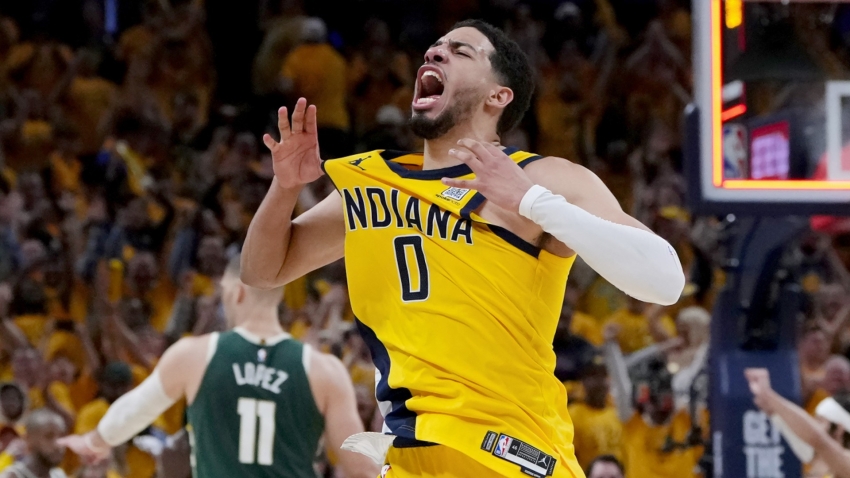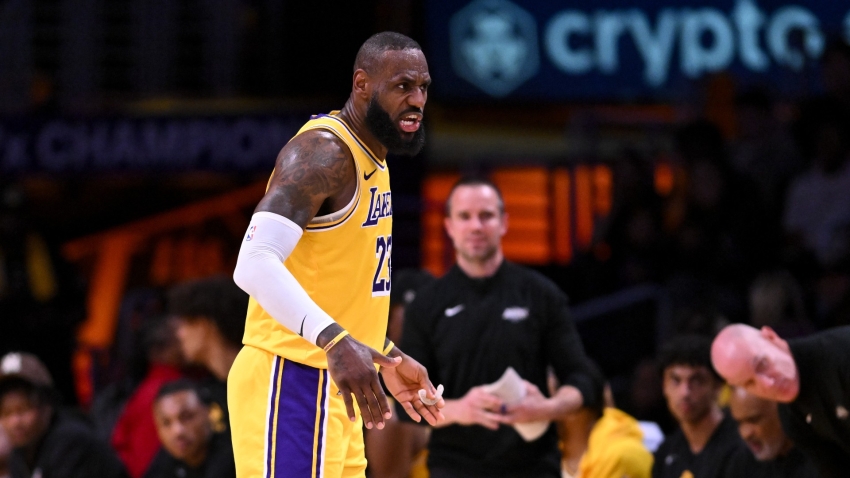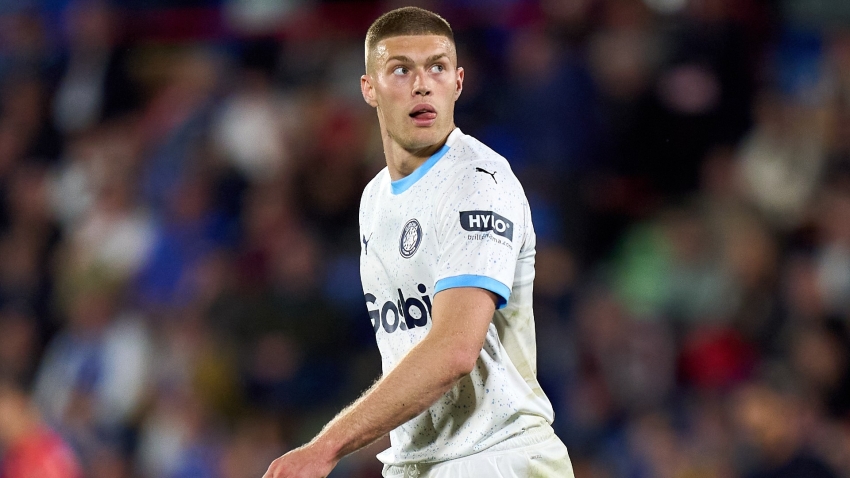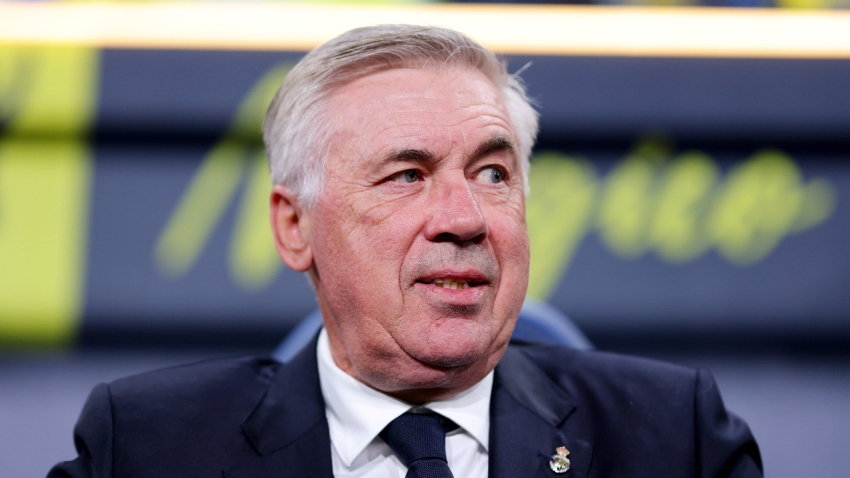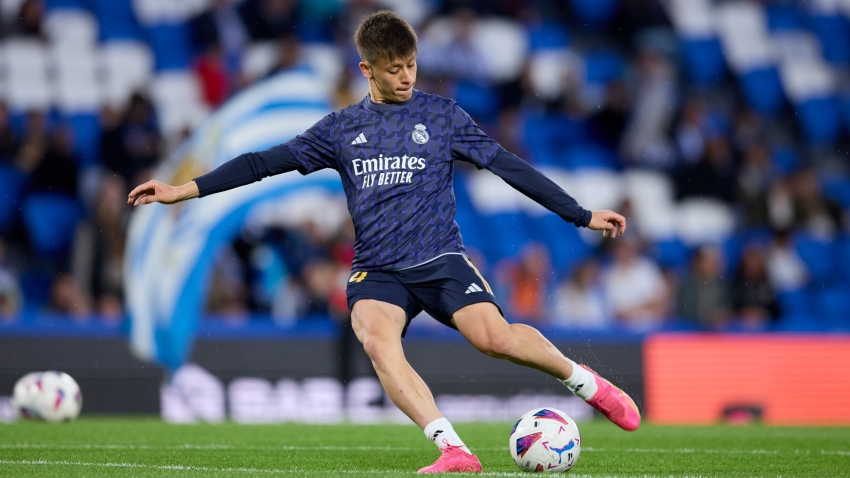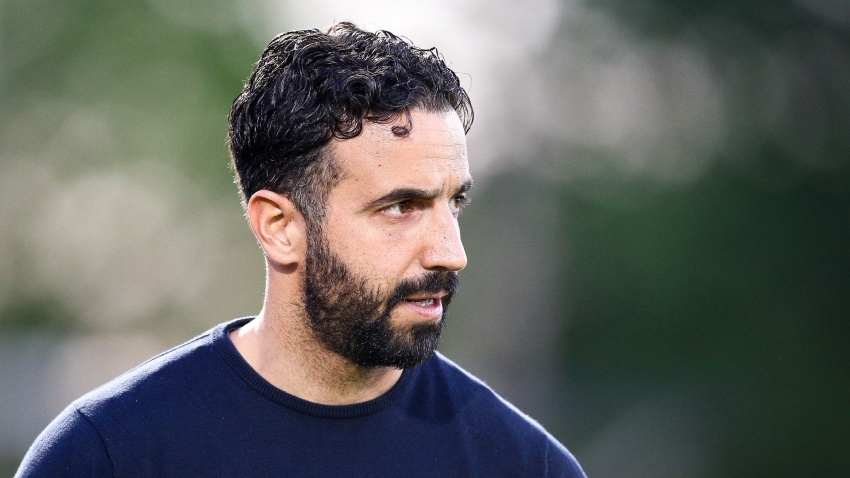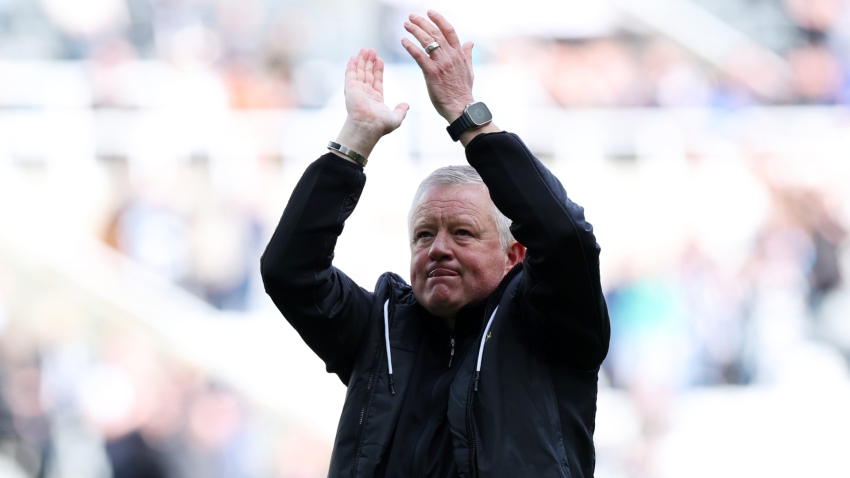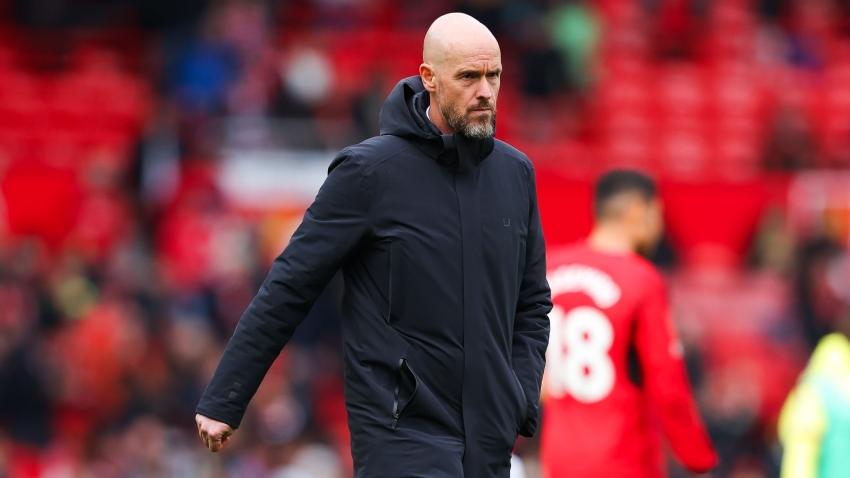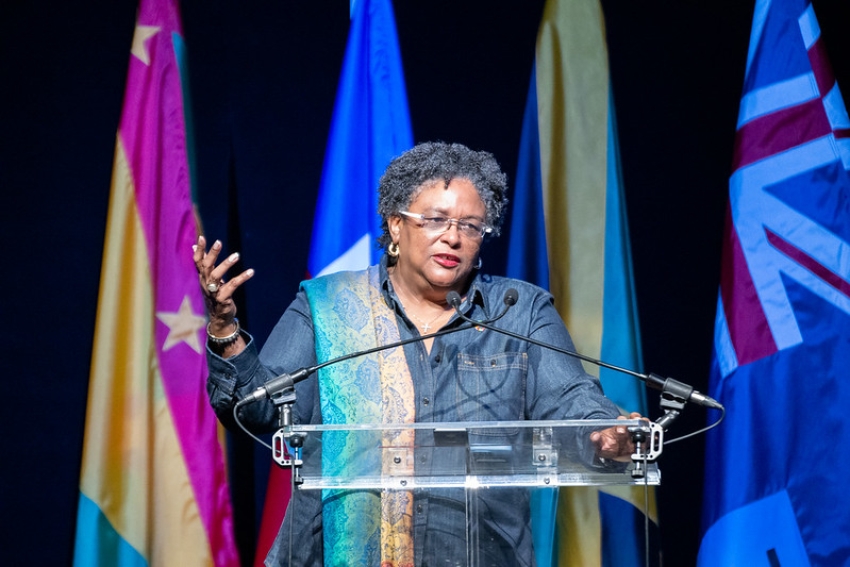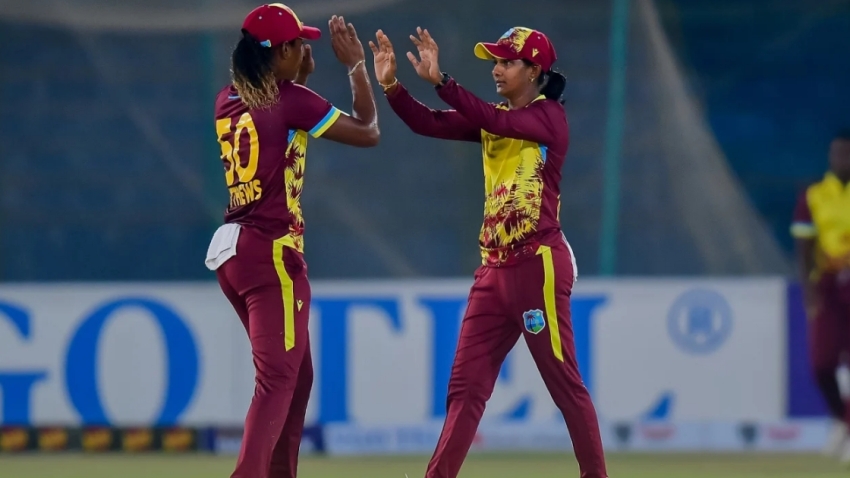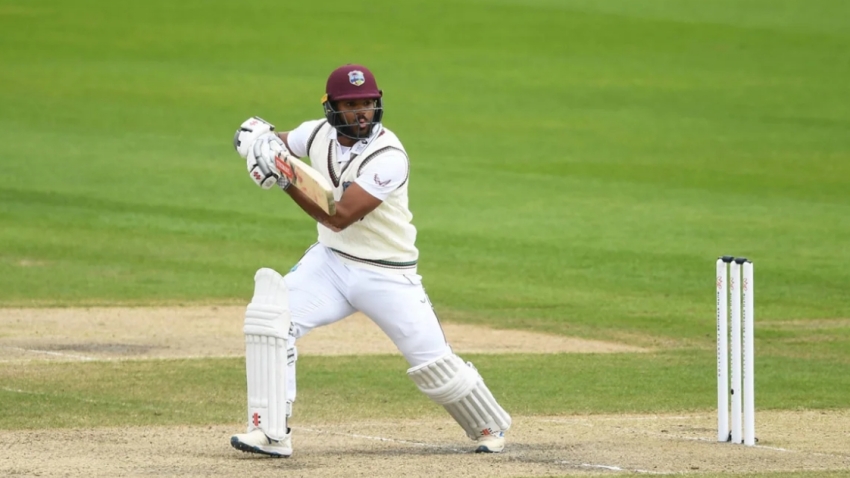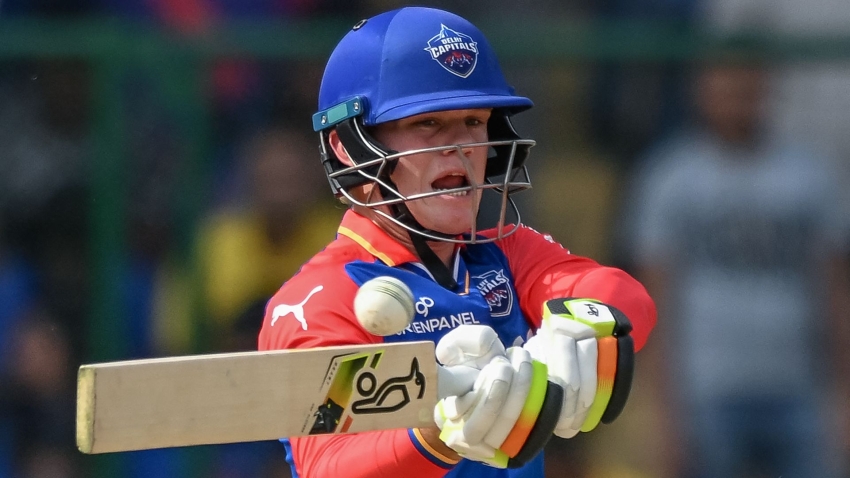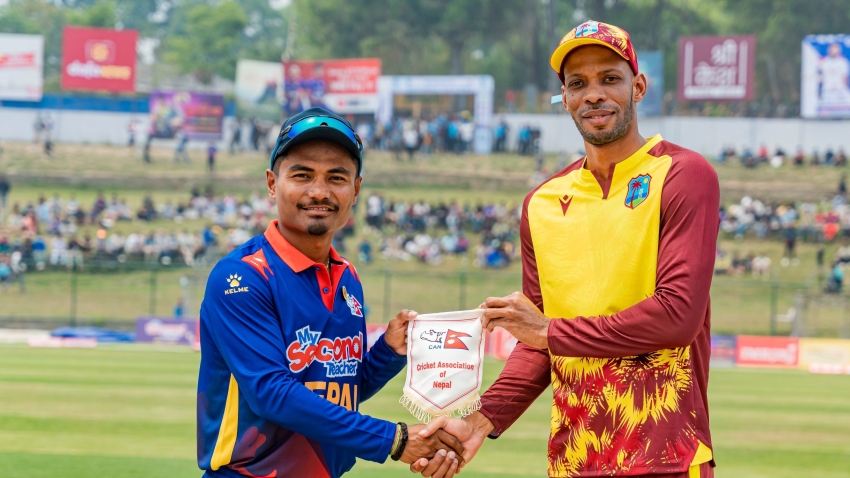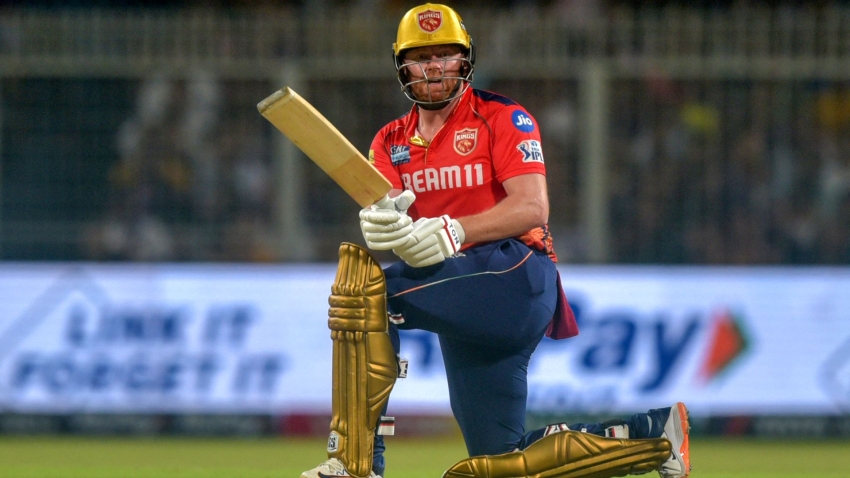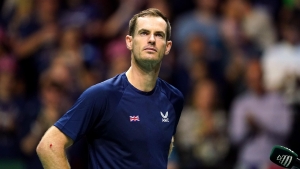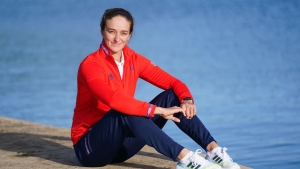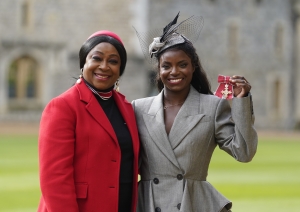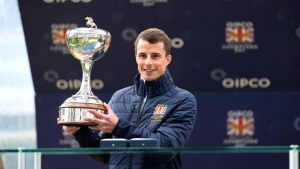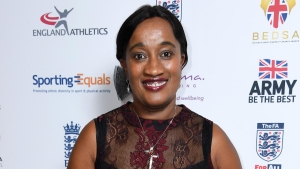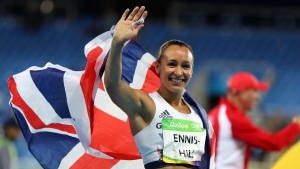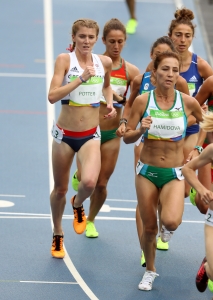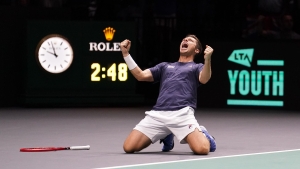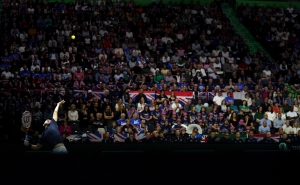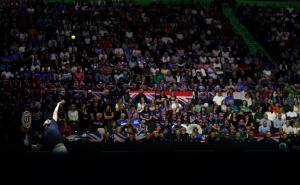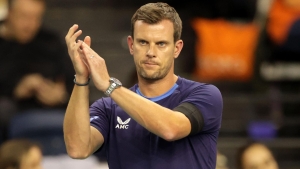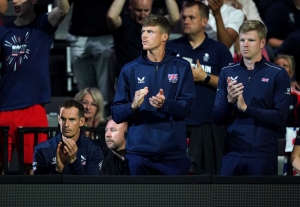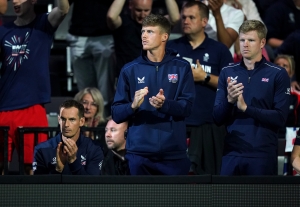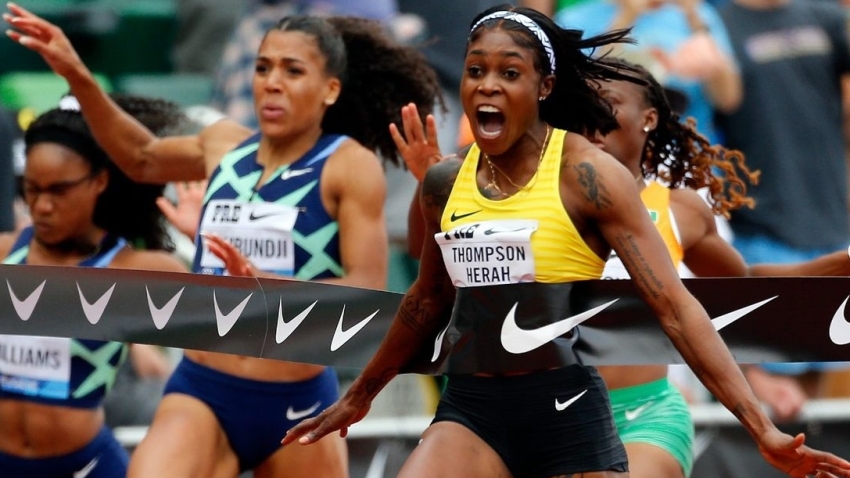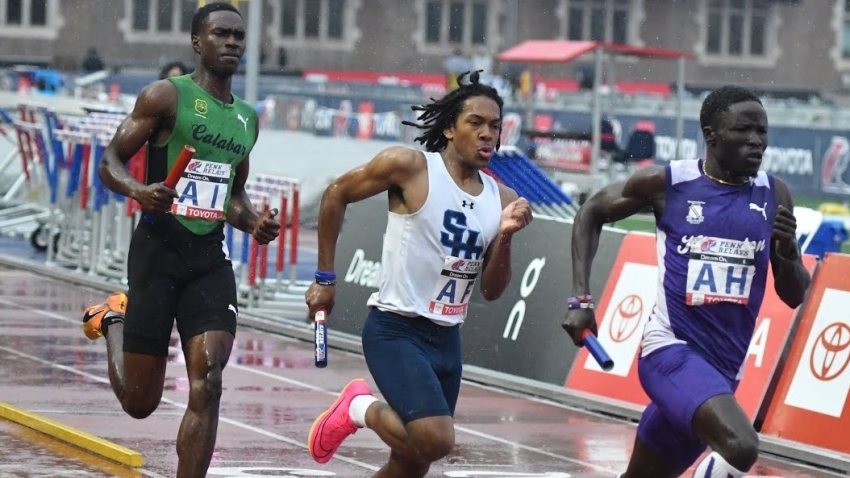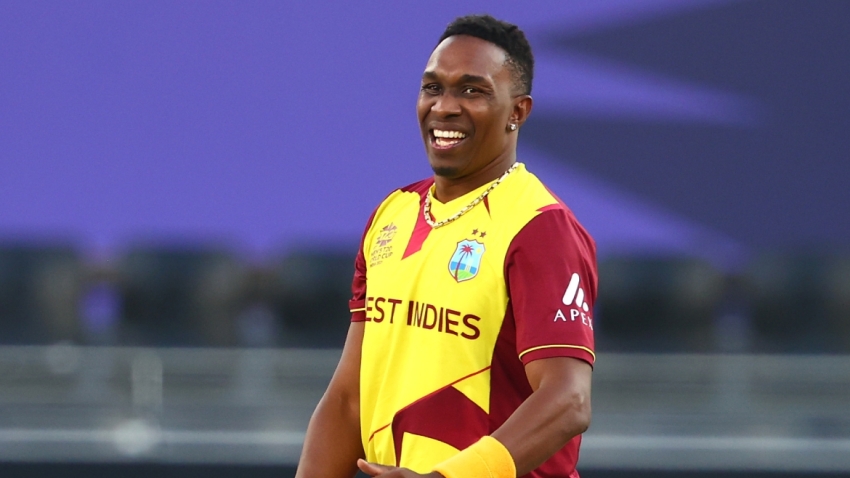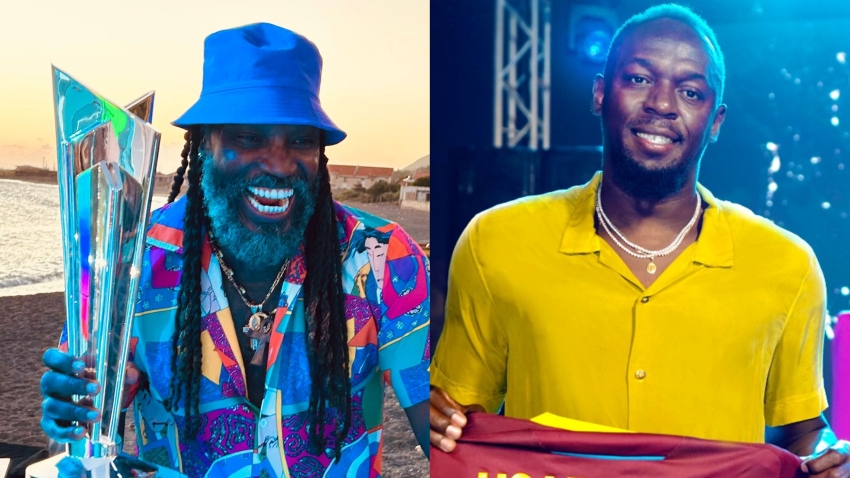Great Britain are dreaming of more Davis Cup glory after pulling off a remarkable victory over France to book their spot in the quarter-finals.
Needing victory in their final tie at a sold-out AO Arena in Manchester to reach the knock-out stages, it went all the way to a final-set tie-break in the last rubber, with Dan Evans and Neal Skupski saving four match points against Nicolas Mahut and Edouard Roger-Vasselin before triumphing 1-6 7-6 (4) 7-6 (6).
When a final French return flew long, Evans and Skupski fell to court before leaping into each others’ arms then celebrating with the rest of the team.
Evans was Britain’s key man across the three ties, winning four rubbers, including two against France having battled from behind to see off teenager Arthur Fils in the opening singles.
“It was nuts,” said the 33-year-old. “The singles is the singles and I feel comfortable on that court but the doubles was chaos. I just kept saying to Neal, ‘We’ve got a chance, we’ve got a chance’. We both kept going. We stuck together.
“It was an amazing day, an amazing feeling. Emotional more than anything. You want to be with these guys in the finals and you know what happens if you lose, it’s not ideal being at home as well. You feel that. It’s an immensely proud moment for me and the team.”
Evans talked after beating Fils about how attending Davis Cup matches as a boy in Birmingham had made him want to play professional tennis and this was his 25th tie across 14 years.
His has been one of the more tumultuous careers in British tennis and last year he annoyed captain Leon Smith and his team-mates by publicly airing his grievances about not being picked in doubles after Britain crashed out in the group stage in Glasgow.
Smith gave the 33-year-old a chance alongside Skupski in February’s play-off in Colombia, where they claimed an important victory, and two wins in decisive rubbers this time have seen him put his money where his mouth is.
Smith remains unhappy with the way Evans made his point, saying: “Am I glad he did it? No I’m not glad he did it and he knows that.
“You can’t get every decision right as captain. What’s important I think is how we came together not just here but when we were in Colombia together.
“I’ve always known Evo and Neal are a good pair. That’s why I think what’s happened this week is really good for us because it was really, really disappointing last year, it hurt a lot.
“Everyone feels it, it comes out in different ways. But for me the most important thing is moving forwards. Me and Evo are great and the team spirit has been brilliant.”
Having a strong doubles team is central to success in the new Davis Cup format, where ties are played over three rubbers rather than five.
Tuesday’s draw will determine who Britain face in the final eight week in Malaga from November 21-26, although they already know it will either be Italy or Novak Djokovic’s Serbia.
Whoever they come up against, Smith will believe that his team, with its improved strength in depth, can have a chance of matching their historic 2015 title run, when Andy and Jamie Murray made it virtually a family affair.
“It’s absolutely brilliant we’re going to Malaga,” said Smith. “We’ve definitely got a chance. We’ve got a really good team.
“We had the benefit at one point of having the best player in the world in our team. Obviously Jamie and Andy doing those things and winning a lot of matches, then the others pitched in and we became really strong.
“We’ve got a chance against anybody. It’s really tight, matches can go either way. Every single tie we’ve had here could have gone either way.”
View this post on Instagram
A post shared by Cameron Norrie (@norriee)
The only negative was two defeats for British number one Cameron Norrie, whose Davis Cup record now stands at an underwhelming seven wins and seven losses.
Norrie’s lack of recent wins was evident in Sunday’s loss to Ugo Humbert, where he played well for long periods but made errors at key moments, including double-faulting on match point.
Smith is not concerned, though, saying: “He’s amazing. He works his socks off. Every practice this week – bang on it. Every time you watch him, his intensity, his focus, his discipline.
“Some parts will just go like that. But that’s why he’s got top 10, why he’s top 20, because he goes at it every single day. He’ll be fine. He just needs to keep doing what he’s doing.”


